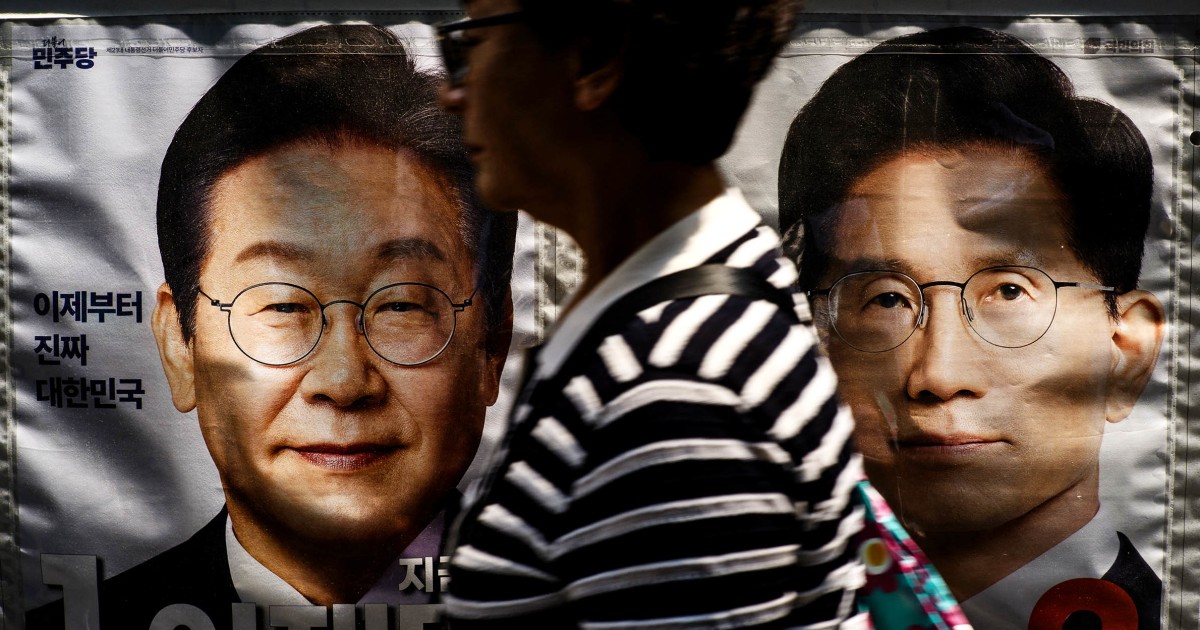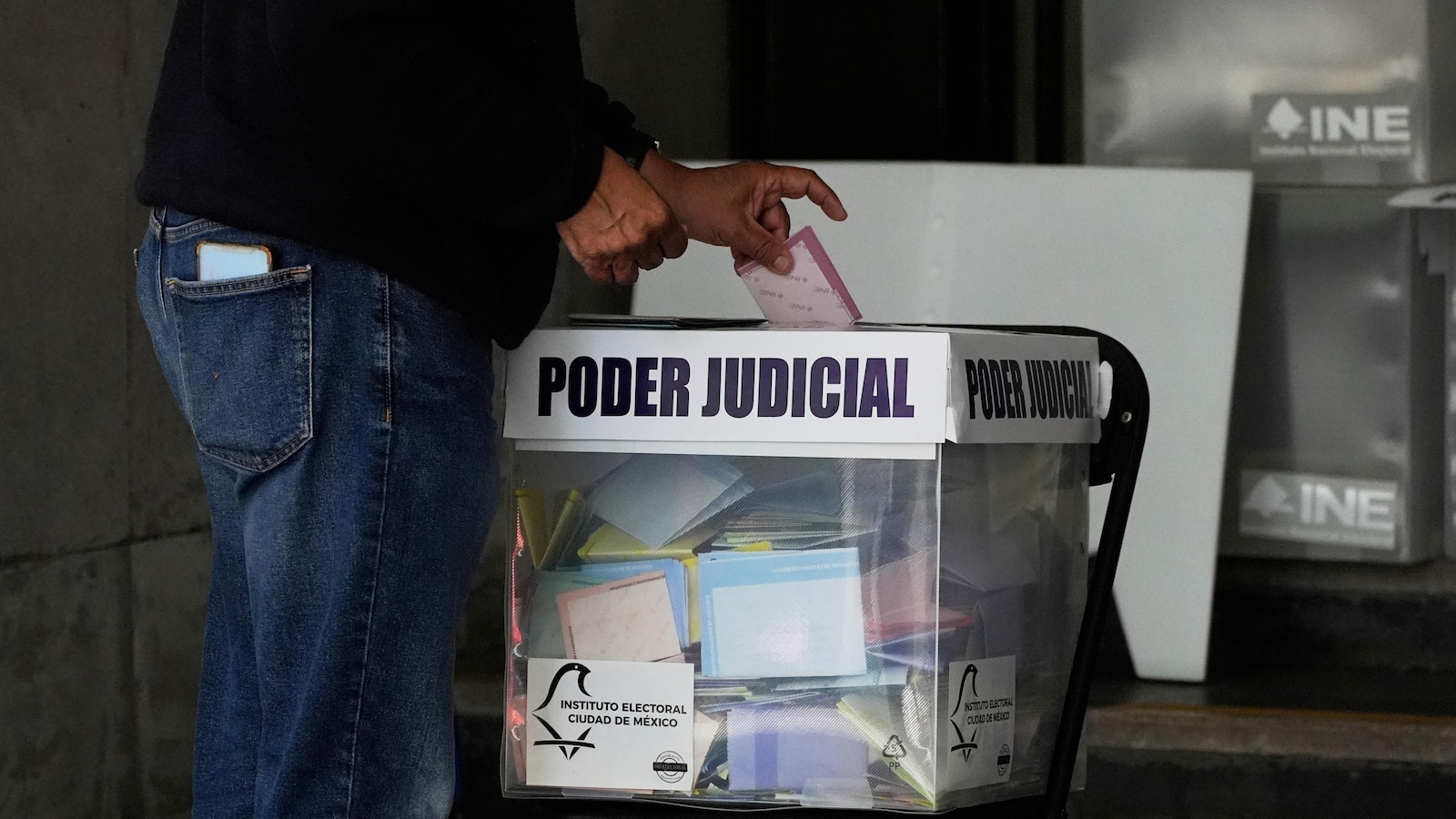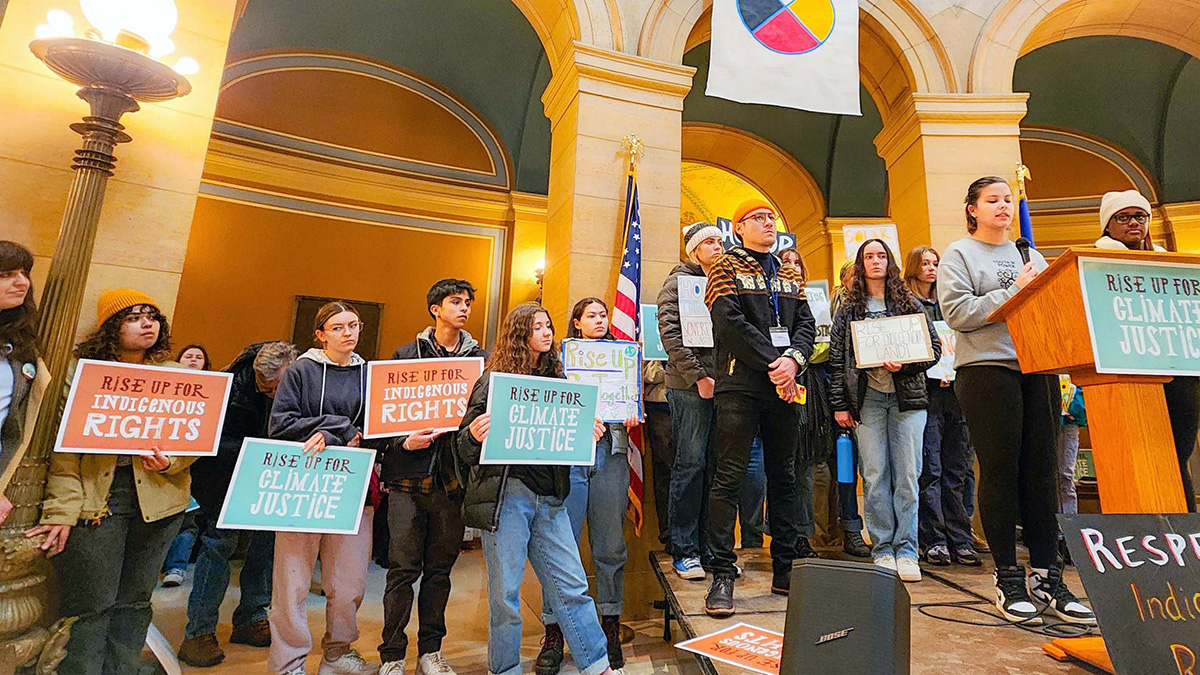[ad_1]
When South Koreans elect a brand new president Tuesday, it is going to finish months of home political turmoil — however their alternative might deliver massive modifications to the nation’s relationship with the United States.
Lee Jae-myung, chief of the liberal opposition Democratic Party, had a transparent lead in polls going into the election, which is being held six months to the day after then-President Yoon Suk Yeol plunged the East Asian democracy of greater than 50 million folks into turmoil by abruptly declaring martial legislation.
Since lawmakers impeached Yoon in December over the short-lived martial legislation order, South Korea has been caught in a management vacuum, churning via a collection of performing presidents. The uncertainty has additionally constrained the U.S. ally in Washington whilst President Donald Trump slapped it with a 25% “reciprocal” tariff, amongst different levies.
The presidential by-election, which was triggered in April when Yoon’s impeachment was upheld by South Korea’s Constitutional Court, guarantees a return to stability, and South Koreans have turned out in document numbers for early voting.
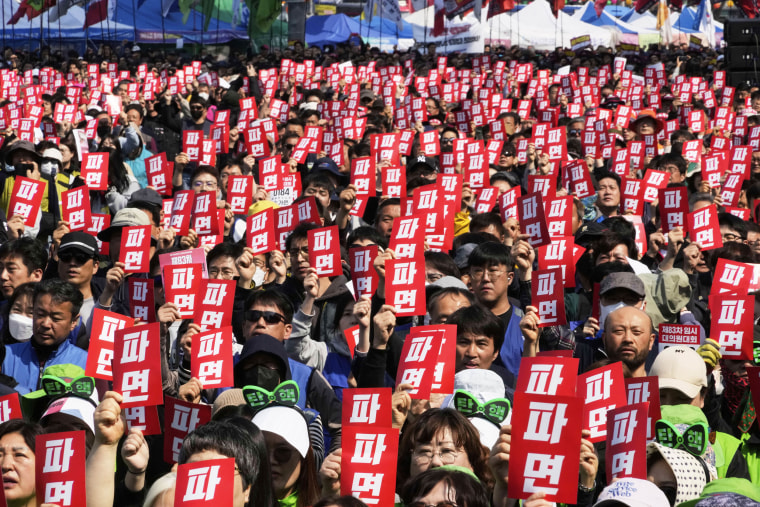
“A lot of people just want to move on, because it’s been a long six months,” mentioned Jennifer Lee, a principal on the Asia Group company consultancy in Washington, who lately returned from a visit to South Korea.
Lee Jae-myung, 61, who narrowly misplaced to Yoon in 2022, has been seen because the almost definitely subsequent president since Yoon was impeached.
But public help for Lee has been pushed extra by anger at Yoon’s conservative People Power Party, which has declined to sentence his actions, than by settlement with Lee’s coverage positions, mentioned Rob York, director for regional affairs at Pacific Forum, a international coverage analysis institute in Honolulu.
“I don’t think enthusiasm for him is especially strong,” York mentioned. “He’s not an especially inspiring figure for a number of reasons, but the conservative party is simply so tainted right now.”
Further boosting Lee’s probabilities is the truth that conservative votes are being cut up between Kim Moon Soo, the People Power Party candidate, and Lee Jun-seok, a younger lawmaker from the upstart Reform Party who has been producing controversy along with his antifeminist remarks.
Though Lee has moved towards the middle in the course of the marketing campaign, he’s usually seen as extra open to China and North Korea than his predecessor and fewer pleasant towards Japan, which is a part of a trilateral safety partnership with the U.S. and South Korea.
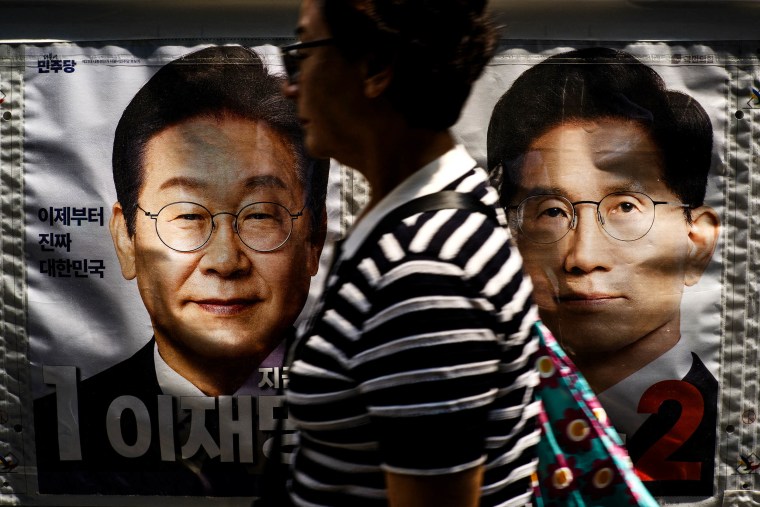
Because Yoon was “so pro-U.S. and hardcore U.S.,” it appears unlikely that the U.S.-South Korea relationship will stay as robust, the Asia Group’s Jennifer Lee mentioned.
“I think that there will be some more balancing act between the United States and China,” she mentioned, and if the Trump administration “comes out hard” on points corresponding to tariffs or cost-sharing for the 28,500 U.S. troops stationed in South Korea, “I think there may be a lot more frictions ahead.”
Still, Lee the candidate has expressed help for the U.S.-South Korea alliance and already begun reaching out to the Trump administration. In an interview final week with Time journal, Lee mentioned Trump “has outstanding skills in terms of negotiation” and that each he and Trump are merely searching for the pursuits of their folks.
Though he doesn’t align with Trump’s conservative views, Lee has previously been nicknamed “Korea’s Trump” by supporters enamored along with his populist, outspoken fashion.
Like Trump, Lee additionally survived an try on his life final 12 months, having been stabbed within the neck throughout a go to to town of Busan.
“Personality-wise I think the two of them, if they’re in a room together, would probably get along,” York mentioned. “Both of them are people who view themselves as dealmakers, and I think they’re more concerned with crafting a deal that makes both of them look good.”
One of Lee’s high priorities will probably be reaching a deal on tariffs, which have hit South Korea arduous. In addition to the 25% tariff, South Korea — the world’s Tenth-largest financial system — is weak to steep duties on a few of its greatest exports, corresponding to metal and vehicles.
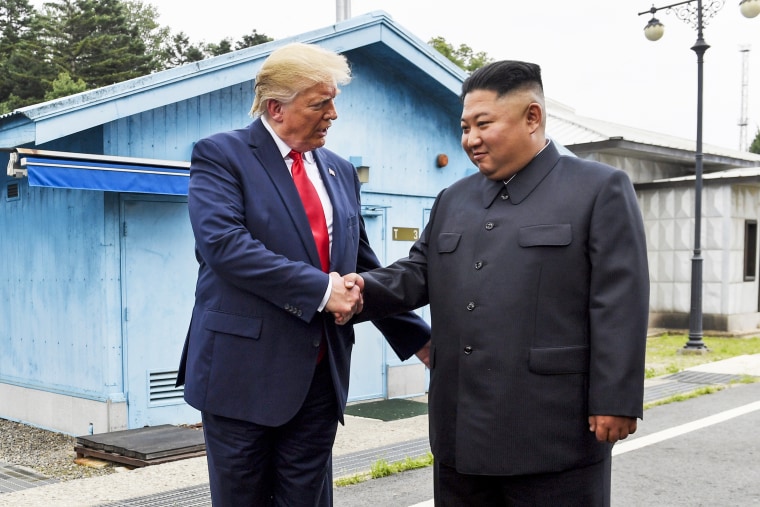
Lee can also be dealing with a extra assertive North Korea, whose chief, Kim Jong Un, has been advancing his ballistic missile and nuclear weapons packages. Like Trump, Lee favors larger engagement with the North, pledging final week to revive a navy hotline between the 2 rivals, who technically stay at battle.
Though Trump has mentioned he’d wish to revive his in-person diplomacy with Kim, North Korea seems far much less keen on negotiating than it was when the 2 leaders met in 2018 and 2019. Kim is now receiving essential financial and navy help via a safety partnership with Russia, and he mentioned final 12 months that North Korea is now not pursuing reconciliation with the South.
The heightened tensions on the Korean Peninsula come amid stories that Trump is contemplating withdrawing 1000’s of U.S. troops from the South, an concept he additionally floated throughout his first time period. Though Seoul says there have been no such discussions, Pentagon officers say a troop discount has not been dominated out.
Neither South Korea nor U.S. Forces Korea (USFK) had been barely talked about in Defense Secretary Pete Hegseth’s speech in Singapore final weekend laying out the U.S. method to the Indo-Pacific, including to considerations about the place the nation stands with Washington.
“The U.S. can unilaterally decide and act on reducing USFK troops. It’s their military, after all,” mentioned Bong Young Sik, a North Korea specialist on the Yonsei Institute for North Korean Studies at Yonsei University in Seoul, referring to U.S. Forces Korea.
But “they need to consider and accommodate the situations their security partners are under and facing,” he mentioned.
“If they go with ‘What is good for the U.S. is good for the world,’ I am not sure how long that approach could work,” Bong mentioned.
Jennifer Jett reported from Hong Kong, and Stella Kim reported from Los Angeles.
[ad_2]
